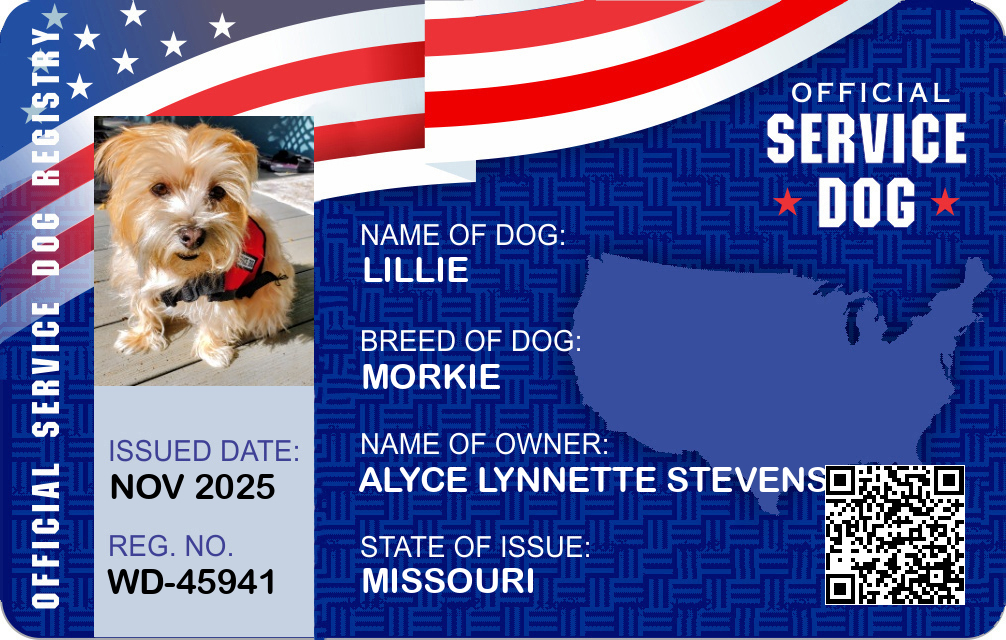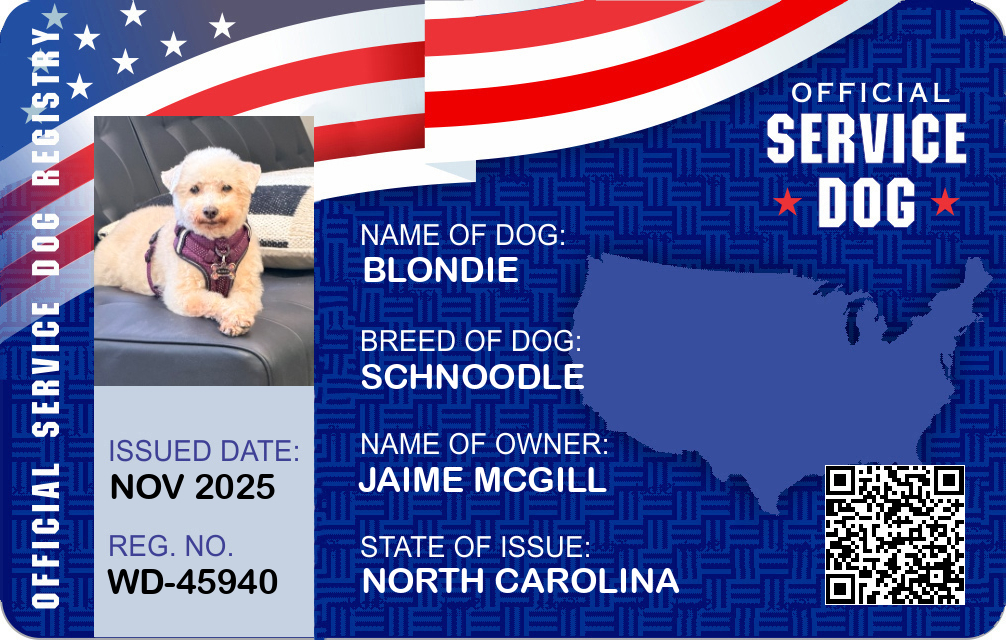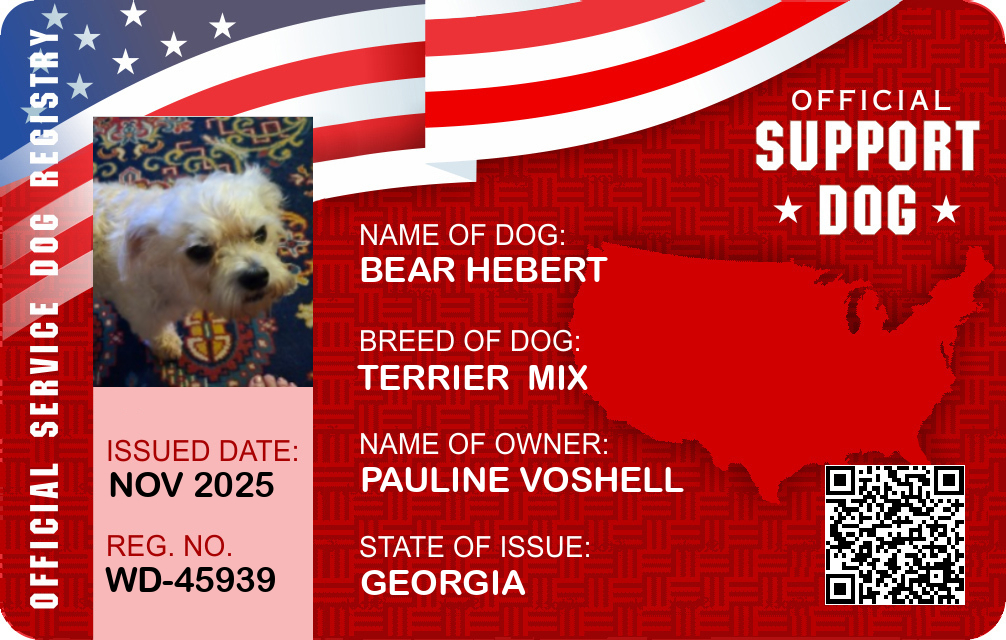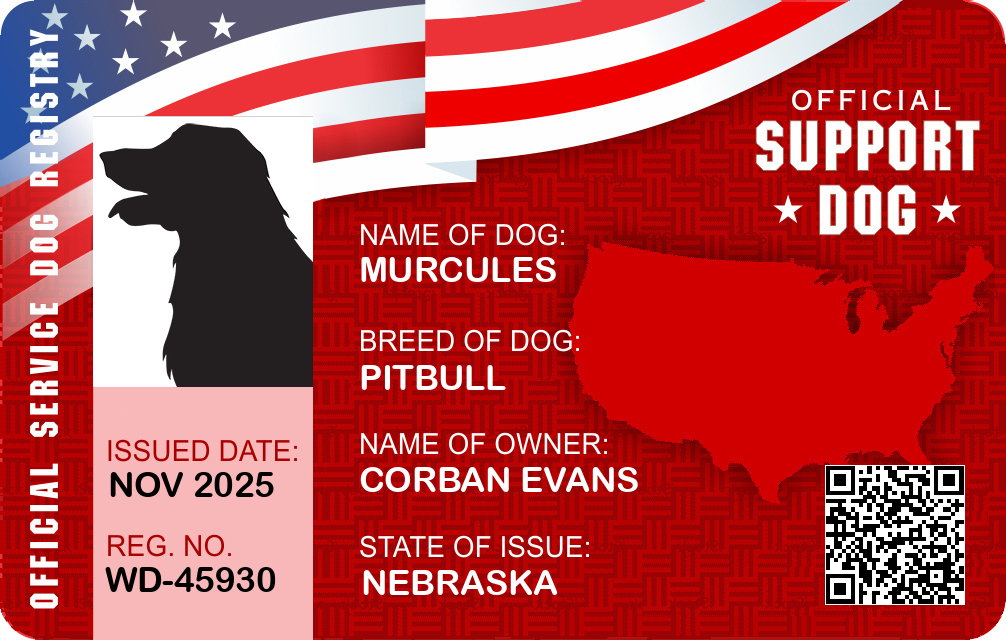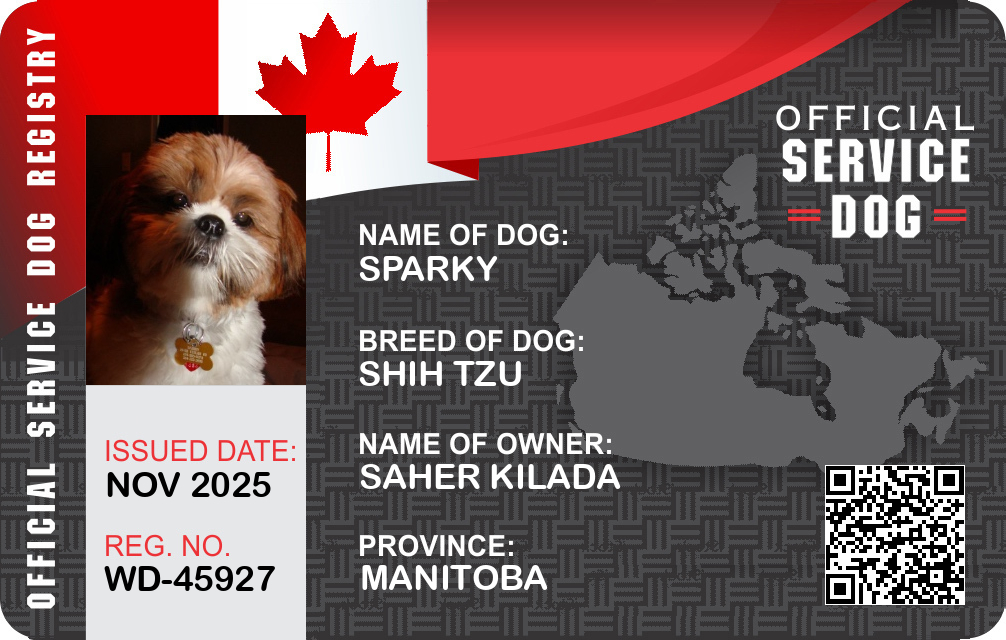West Virginia Service Dog Laws
Register Your Dog
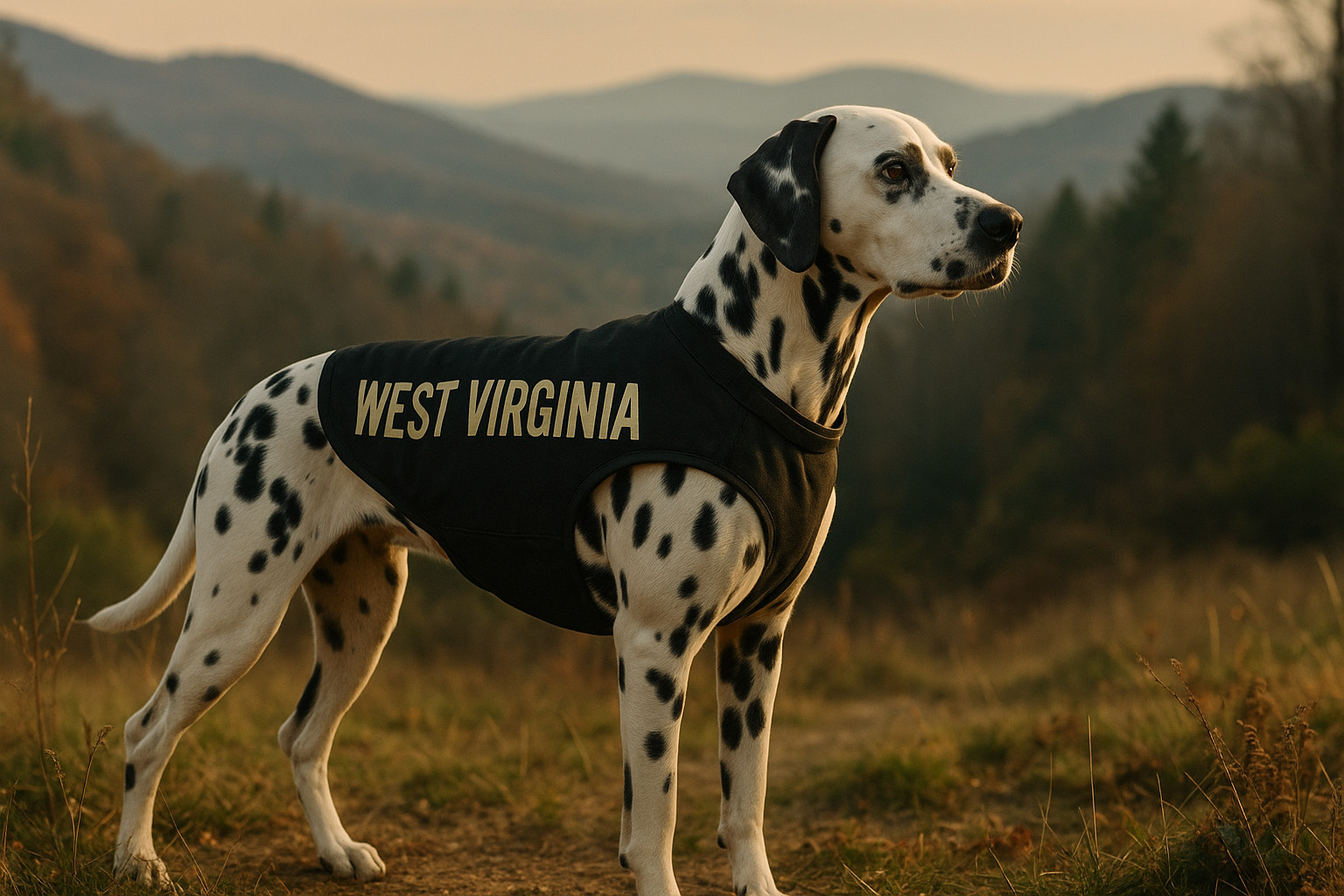
Overview of Service Dog and Legal Definitions in West Virginia
Understanding the service dog laws in West Virginia requires a comprehensive look at both federal and state regulations. These laws identify what constitutes a service dog and detail the rights and responsibilities of their handlers across various facets of daily life.
What is a Service Dog?
In legal terms, a service dog is a specially trained animal that assists individuals with disabilities. According to the Americans with Disabilities Act (ADA), a service dog is defined as a dog individually trained to perform tasks for a person with a disability. These tasks must be directly related to the person’s disability, such as guiding individuals who are blind, alerting individuals who are deaf, pulling a wheelchair, or retrieving items such that one cannot do due to mobility limitations.
How Service Dogs Differ from Other Types of Assistance Animals
Service dogs differ from other assistance animals, such as emotional support animals (ESAs), in several ways. While service dogs are specifically trained to perform tasks related to a person’s disability, ESAs provide comfort simply by being present. ESAs are not afforded the same access rights as service dogs.
Therapy dogs, often confused with service animals, provide psychological or physiological therapy to individuals other than their handlers, typically in institutional settings like hospitals or schools. Unlike service dogs, therapy and emotional support animals do not receive the same public access rights under federal law.
Key Federal Laws Affecting Service Dogs
#### Americans with Disabilities Act (ADA) The ADA is the primary federal statute that governs the rights of service animals, ensuring their handlers’ access to public spaces. It prohibits discrimination against individuals with disabilities in all areas of public life.
#### Fair Housing Act (FHA) The FHA requires landlords and housing providers to make reasonable accommodations for individuals with disabilities, including allowing service dogs and, uniquely, emotional support animals in housing, provided certain conditions are met.
#### Air Carrier Access Act (ACAA) This federal regulation ensures rights of access for service dogs on airplanes, although airlines might have specific documentation requirements and regulations about in-cabin behavior.
State-Specific Service Dog Laws in West Virginia
West Virginia’s state laws align closely with federal guidelines but also include state-specific statutes that directly address service dogs. These laws provide additional clarity or guidance for specific situations like housing and public accommodations.
Housing Rights and Responsibilities
Under both the ADA and FHA, individuals with disabilities are entitled to housing that accommodates their needs, and this includes the right to live with a service dog. Landlords in West Virginia cannot charge pet fees for service dogs and must allow them, even in buildings with a no-pet policy. However, tenants are responsible for any damage caused by the animal.
Public Access and Accommodation
Service dogs are permitted in all public spaces in West Virginia, including restaurants, hotels, and stores, in accordance with ADA guidelines. Businesses can ask if the dog is a service animal required because of a disability and what task the animal has been trained to perform, but they cannot request documentation, demand the dog demonstrate its ability to perform the work or task, or inquire about the nature of the handler’s disability.
Transportation and Travel Rules
Service dogs are allowed to accompany their handlers on all public transportation systems in West Virginia, including buses and trains. When it comes to air travel, regulations under the ACAA apply. Service dogs must behave appropriately during travel and fit within the space of the passenger’s seat.
Employment and Workplace Considerations
Employers in West Virginia are required to provide reasonable accommodations for employees with disabilities, which includes permitting service dogs in the workp
lace unless it poses an undue hardship or directly threatens the safety of the workplace. Employers should engage in an interactive process with the employee to establish reasonable accommodations.Documentation, Requirements, and Processes in West Virginia
Service Dog Documentation and Who Can Issue It
While federal law does not require service dogs to be registered, individuals may choose to obtain voluntary registration or identification to ease access to public places or transportation. Some organizations provide such identification, but service dog handlers must ensure these do not misrepresent the nature or purpose of the animal.
Landlord, Business, and Provider Verification Rules
Landlords and business owners can only make limited inquiries concerning service dogs. Specifically, they can ask if the dog is required due to a disability and what work it has been trained to perform. They cannot require any form of detailed documentation or inquire about the handler’s specific disability.
Rights, Limitations, and Legal Risks
Rights Service Dog Handlers Have in West Virginia
Handlers have the right to equal access and opportunities in public accommodations, housing, and transportation. This means non-discrimination and allowance for service dogs to accompany them in most areas open to the public.
Limits on Service Dog Protections and Common Restrictions
Despite broad protections, there are scenarios where service dogs may be excluded, such as if the dog is out of control and the handler does not take effective action to control it, or if the dog is not housebroken. In such cases, the handler must be given the opportunity to obtain services or goods without the animal’s presence.
Penalties for Fraud or Misrepresentation
Misrepresenting a pet as a service animal is increasingly recognized as a legal offense in many states, including West Virginia. Offenders might face fines or other civil liabilities. Verification and legal processes are strengthened to prevent such fraud and protect the integrity of service dog regulations.
Practical Guidance for Service Dog Handlers in West Virginia
How to Qualify for a Service Dog Legitimately
To qualify for a service dog, an individual must have a disability and a requirement for the dog to perform specific tasks directly related to that disability. Organizations specializing in training and placing service dogs often require a formal application and evaluation process.
How to Talk to Landlords, Airlines, and Employers
Clarity and documentation (when appropriate) are essential when discussing your rights with landlords, airlines, and employers. Prepare to articulate the specific tasks your service dog provides, as well as how it assists with your disability, in clear and objective terms.
Summary of Service Dog Laws in West Virginia
- Rights:
- Service dogs are permitted in all areas open to the public.
- Landlords cannot charge pet fees for service dogs.
- Employers must accommodate service dogs as part of reasonable workplace adjustments.
- Limitations:
- Service dogs can be excluded if they are out of control, not housebroken, or pose a direct threat.
- Public accommodations may inquire only minimally about the dog.
- Documentation:
- No federal legal requirement for service dog documentation, but voluntary identification helps facilitate access.
- Risks:
- Misrepresentation of an animal as a service dog can lead to legal penalties.
Understanding these service dog laws in West Virginia can empower handlers to effectively advocate for their rights and the needs of their service dogs across various settings. Staying informed and prepared is crucial for avoiding misunderstandings and ensuring compliance with both state and federal guidelines.



